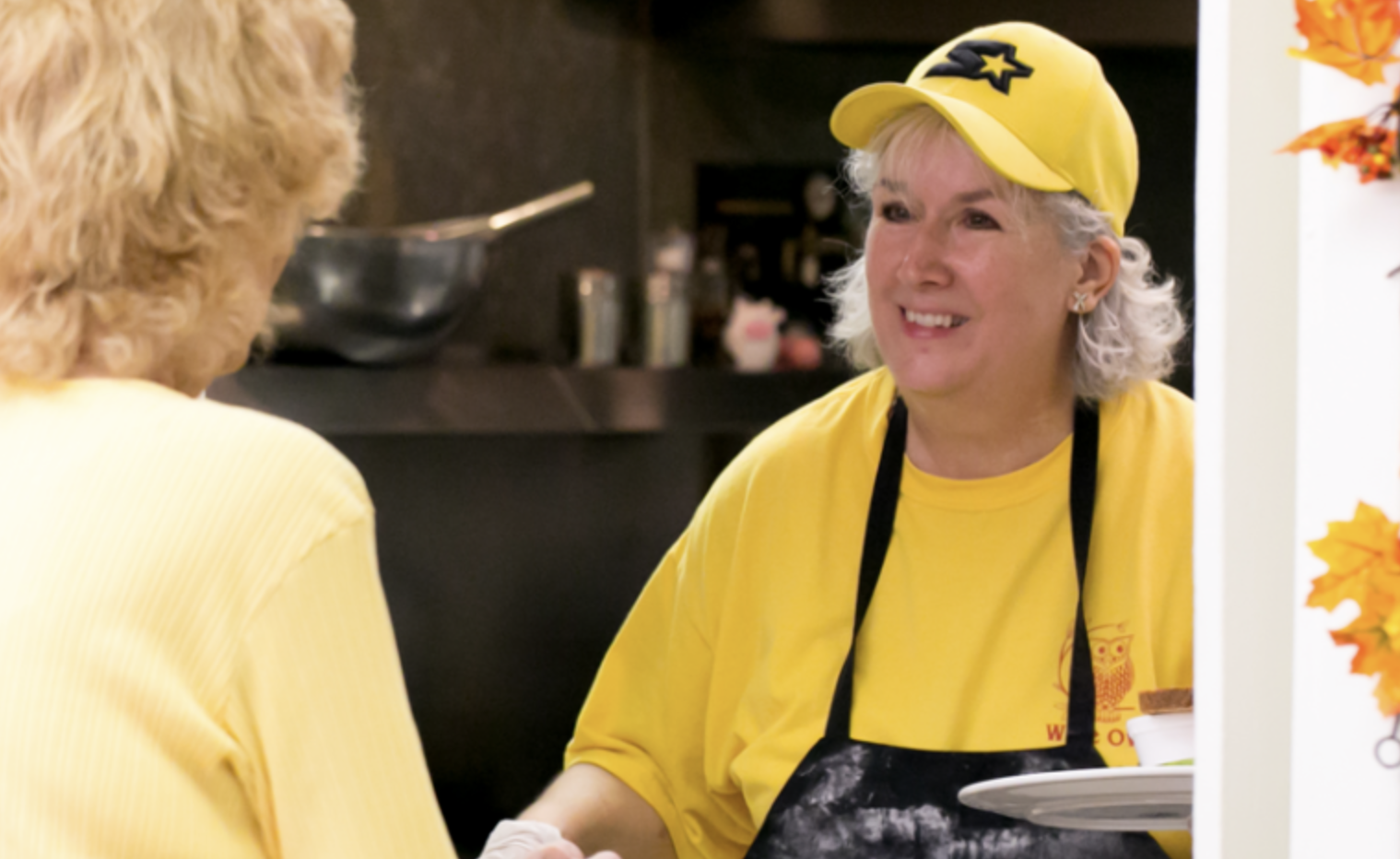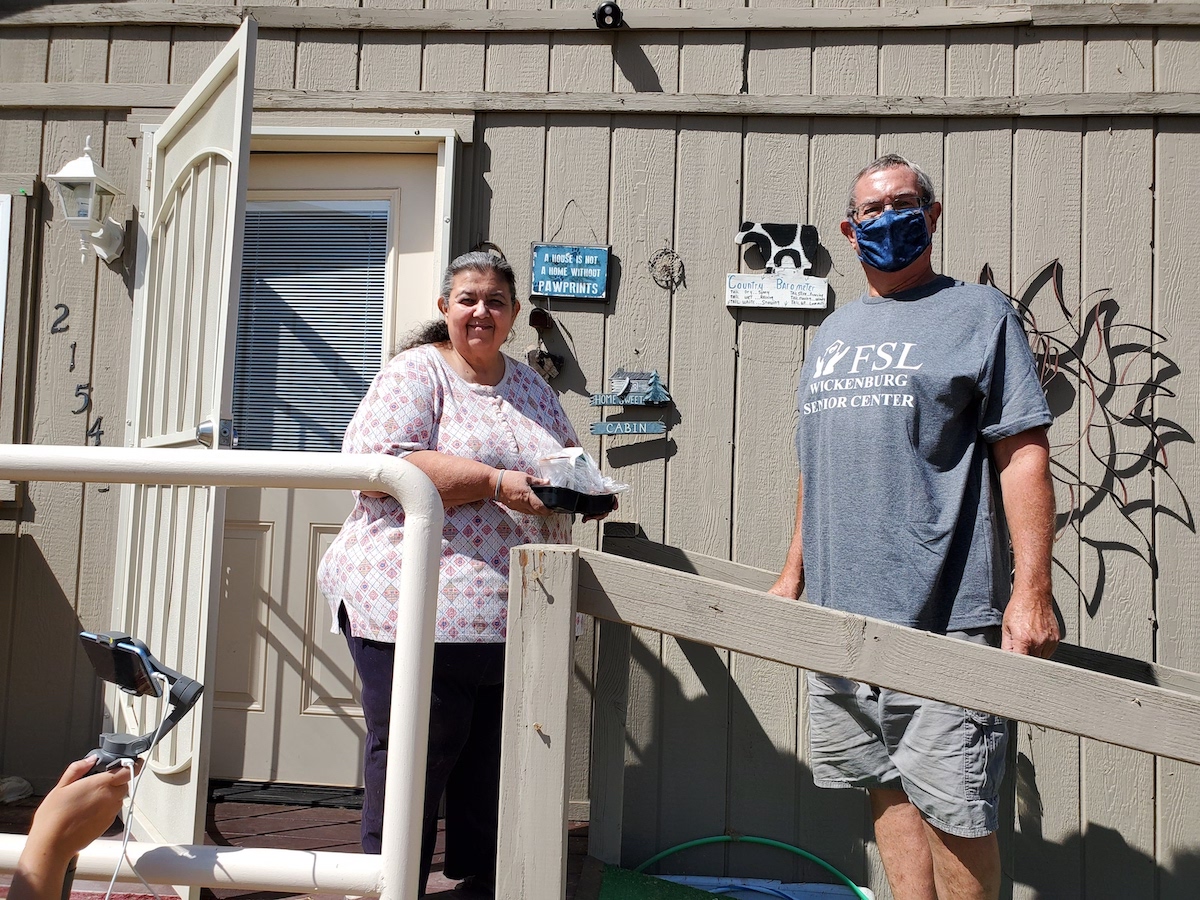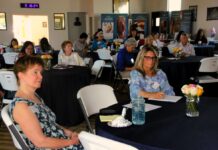
It’s 10 a.m. on a weekday morning and there’s a familiar knock at Cathy Langley’s door, bringing a smile to her face. She’s been waiting for just this moment.
That’s because five days a week, Langley, who suffers from severe arthritis and an array of other medical conditions, receives a hot meal delivered to her by the Foundation for Senior Living.
“I’m not able to stand long, to manage to stand by a stove to cook or anything,” Langley said. Her husband also received the meals until his death from cancer eight months ago.
“It’s been the best thing for me,” Langley said. “I live alone now.” Walter, the man who usually delivers her meals, is often the only person Langley sees all day.
“Walter is fabulous — he’s a gem,” Langley said. “I worry about him if he doesn’t show up because he’s very personable and very concerned. And he tries to help me out a lot.”
Langley is unable to walk down the ramp from her front door, so Walter brings the meal straight to her door.
“He’s a blessing. He’s very kind and he’s always asking how I’m feeling,” Langley said. “It’s nice to have somebody who’s not just dropping off like a robot. It’s nice to be cared about and even though we were strangers, we’re now friends.”
Langley is one of thousands of people across the Diocese of Phoenix who receive a nutritious meal from FSL, according to Karla Mortimer, program director of the nutrition program. In Peoria alone, about 3,000-4,000 meals are delivered each month. “Right now from July until December, we’ve delivered 48,710 meals,” Mortimer said.
When you give to the Charity & Development Appeal you support the work of more than 70 organizations and ministries throughout the Diocese of Phoenix, transforming the lives of thousands of people. Together, we can put our faith into action. Together, we can do more than any one parish or person can do. Your love gives hope to so many!
Like so many other facets of life, the COVID-19 pandemic has had an impact on feeding the elderly and vulnerable whom FSL serves.
At the FSL center in Wickenburg, about 75 people, known as congregants, used to show up to eat a reduced-price meal on site. For a small contribution, they were able to partake of a nutritionally balanced, hot meal each day. The center was closed for a while but is now opened to limited numbers.
“They do have to make the reservation the day before in order for us to have a safe count and then for the rest of them, it’s a drive-through pick up of the meal that is given to them,” Mortimer said. “In Peoria, everything is now delivered.”

One of the greatest challenges during the pandemic has been that regular volunteers, many of them retired, stopped coming. “Our volunteers completely dropped off. Everybody we had helping in the kitchen or who helped with delivery of the meals, they just kind of decided not to volunteer,” Mortimer said. There was the fear of contact with meal recipients, especially since many have underlying health conditions.
Things are better now that others have stepped up to help out, but Tom Egan, CEO of FSL, emphasizes that the meal delivery service is so much more than ensuring the client has enough to eat.
“It’s not just the meal — it’s the connection that somebody’s checking on them. Are they OK? Are there any noticeable changes in their behavior or appearance? It’s sort of a safety check,” Egan said.
He pointed to the early days of the pandemic when FSL had to step up its game. “When the pandemic started, and we were telling seniors they had to isolate, social distance, stay away from people, don’t go to the grocery store. It’s like OK, but people need to eat,” Egan said.
“We’ve seen such a dramatic increase — I think it’s a 45 percent increase in demand. When the spike happened, we had to ramp up pretty much overnight,” Egan said.
Egan pointed to the crucial funding FSL receives from the Charity and Development Appeal. While several other sources of dollars require their funds only pay the raw food cost, they don’t pay for the dietician who designs the menu, the chef who prepares the meal, the containers the food is delivered in, or the transportation to get the meals to clients.
“We start out the year with a gap we have to fill every year,” Egan said. CDA funding is a big part of bridging that chasm, he said, and it’s particularly needed this year.
“This pandemic has really shined a light on the needs of seniors, particularly low-income seniors in our community,” Egan said. “We often think of the needs of children and families, and those are important too, but the pandemic really has had a disproportionate effect on seniors and brought to light that we need to provide care and comfort to our senior neighbors as well.”
Langley, who relishes the meals she receives from FSL, is just one example of the thousands served by FSL’s meal delivery service.
“When it’s time to eat, I can just go and put the meal in the microwave and sit my chair and wait for it. I can have a decent meal and I’m OK for the night,” Langley said. “To me, it’s important to at least have one good meal a day.”






